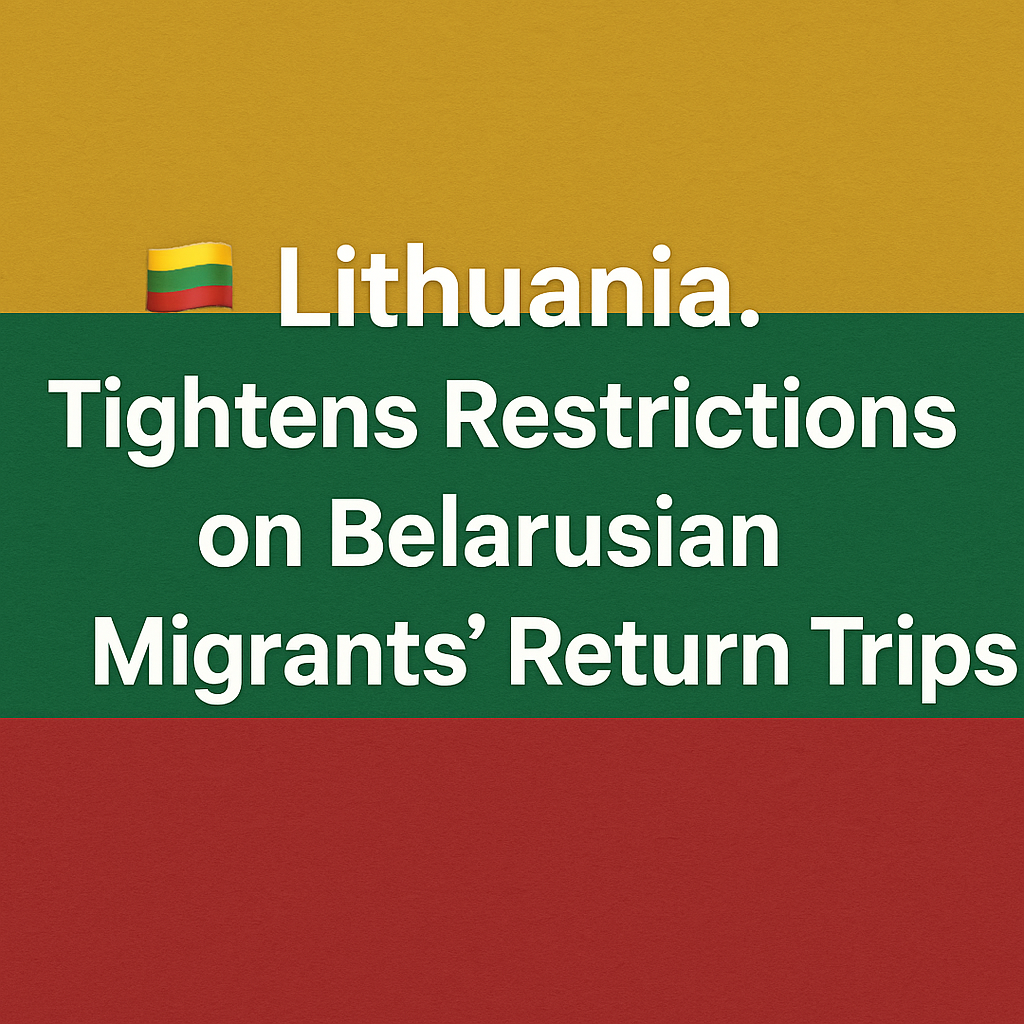
Lithuania. Tightens Restrictions on Belarusian Migrants’ Return Trips
Introduction
Lithuania has taken a decisive yet controversial step that, in my opinion, cuts straight into the lives of Belarusian migrants. Framed as a move to enhance national security, it casts a shadow over thousands of people who fled authoritarianism in search of a safer life. Behind every border control policy, there is a human story — and this decision risks silencing too many of them.
Key Takeaways
-
Lithuania plans to revoke residence permits for Belarusians frequently visiting their homeland.
-
The restrictions are framed as a national security measure.
-
Lithuania’s Ministry of Interior warns the proposal could overwhelm state agencies.
-
Political analysts urge lawmakers to consider migrants’ family obligations.
-
Border crossings at Lithuania’s eastern border are increasing, despite declining Belarusian traffic.
Lithuania Proposes Severe Travel Limits for Belarusians
Right now, the Lithuanian Parliament is debating strict measures that would limit the ability of Belarusian migrants to return to their home country. Officials argue that regular trips to Belarus could endanger Lithuania’s security, as cross-border movements complicate the work of intelligence services.
Though border guard data shows fewer Belarusians crossing each year, authorities remain wary. According to them, restricting these movements will tighten control over potentially risky activities and prevent unnecessary fluidity at the border.
Growing Criticism From Inside the Government
Lithuania’s Interior Ministry has voiced concerns, warning that such rules would impose an additional burden on government agencies already stretched thin. Political experts, too, emphasize the need for nuance. People have families, elderly parents, and work obligations that require travel. Blanket restrictions, they argue, risk turning legitimate needs into bureaucratic nightmares.
As Vytis Jurkonis, a respected Lithuanian political analyst, pointed out: not all cross-border travel is suspicious. He stressed the importance of not penalizing those visiting sick relatives or handling essential business affairs.
More Than Just a Belarusian Issue
Interestingly, Jurkonis went further, highlighting that Lithuania isn’t the only country feeling pressure from Belarusian intelligence operations. He noted that citizens from Lithuania, Latvia, and Poland also fall victim to information-gathering at Belarusian border points. In this context, he argues, security measures should not solely target Belarusian migrants but anyone whose actions genuinely compromise national safety.
Rising Tension on the Eastern Frontier
Meanwhile, Frontex reports a six percent uptick in irregular crossings at Lithuania’s eastern borders — a trend that adds fuel to the government’s security concerns. But here’s the dilemma: while the number of Belarusian crossings decreases, other flows increase, with Ukrainians, Russians, and Sudanese among those recorded.
I must say, it feels like Lithuania is caught between a rock and a hard place. On one hand, genuine concerns about border control and foreign intelligence activities. On the other, the basic human need to maintain family ties and dignity while living in exile.
Conclusion
In conclusion, Lithuania’s move to tighten restrictions on Belarusian migrants’ return trips feels like a heavy-handed approach to a complex issue. National security is undeniably important, but so is preserving humanity in policymaking. The line between protection and punishment is thin — and right now, it seems dangerously close to being crossed.
#Lithuania
Source – schengen.news
